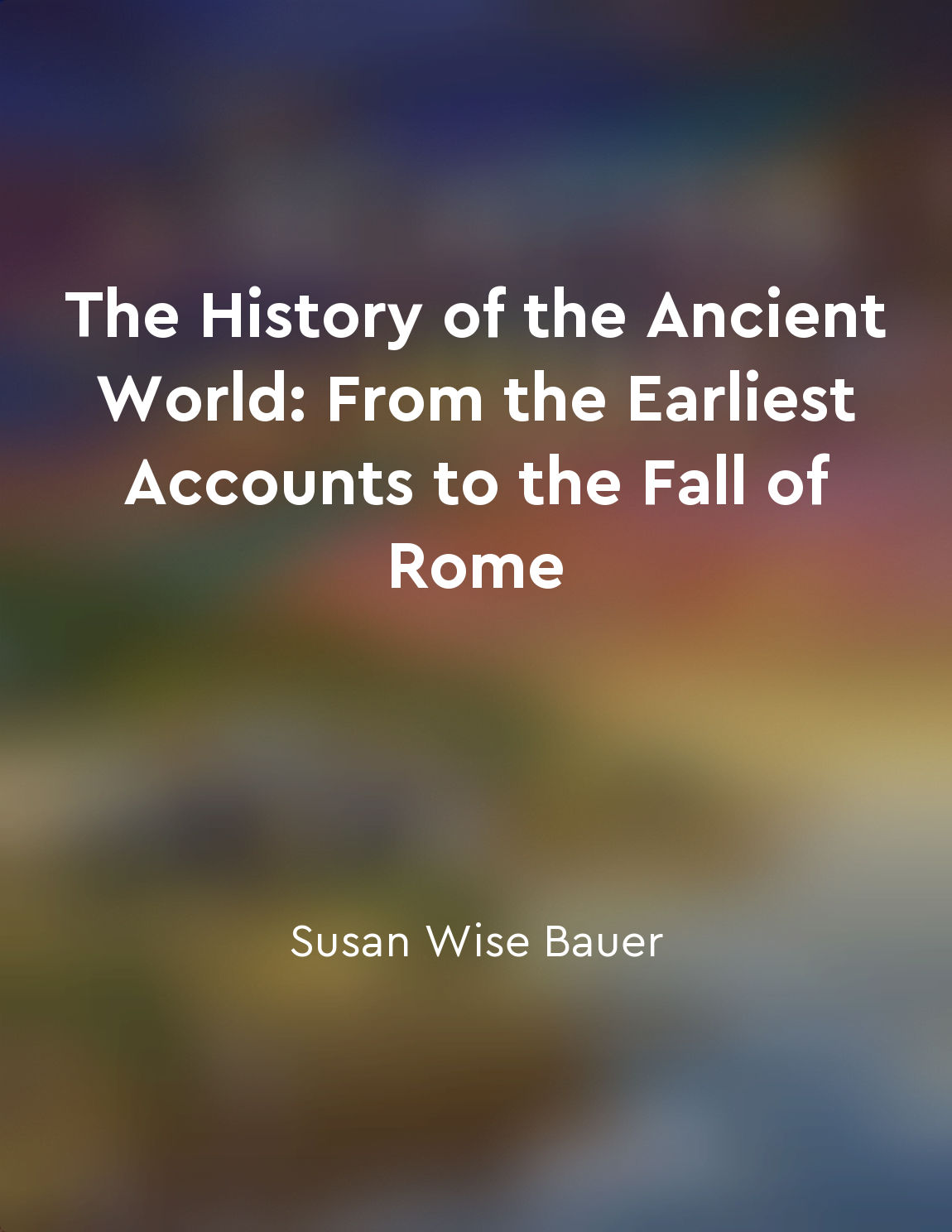Octavian was proclaimed the first emperor of Rome from "summary" of History of Julius Caesar by Napoleon III (Emperor of the French)
Octavian, the adopted son of Julius Caesar, found himself in a position of great power following the assassination of his predecessor. With his military prowess and political acumen, he quickly established himself as a formidable leader in Rome. Octavian's rise to power was marked by a series of strategic alliances and military victories that solidified his control over the Roman Empire. In 27 BC, Octavian was given the title of Augustus, a term that signified his supreme authority over the Roman state. This proclamation effectively marked the beginning of the Roman Empire, with Augustus at its helm as the first emperor. His reign brought about a period of relative peace and stability known as the Pax Romana, during which Rome experienced a flourishing of art, architecture, and culture. Augustus's rule was characterized by a series of reforms aimed at strengthening the Roman state and centralizing power under his authority. He implemented a system of government that emphasized the importance of the emperor as the ultimate source of power, while also maintaining the facade of Republican institutions. Augustus's reign was marked by a careful balance of autocratic rule and the semblance of traditional Roman governance. Under Augustus's leadership, Rome experienced a period of unprecedented prosperity and expansion. He undertook ambitious building projects, such as the construction of the Pantheon and the Forum of Augustus, which served to enhance the glory of the empire. Augustus also implemented social and economic reforms that aimed to improve the lives of the common people and ensure the stability of the empire. In the eyes of many Romans, Augustus was not just a ruler, but a divine figure who brought order and prosperity to the empire. His reign marked a turning point in Roman history, as the Republic gave way to the autocratic rule of the emperors. Augustus's legacy as the first emperor of Rome would endure for centuries, shaping the course of Western civilization.Similar Posts
Octavian's victory over Antony at Battle of Actium
The Battle of Actium was a decisive moment in the struggle for power between Octavian and Antony. Octavian, who had gained cont...
Rome reached its peak during the reign of Augustus
The period which elapsed from the death of Augustus to the reign of Marcus Antoninus, was marked by the rare advantage of inter...
Caesar's military prowess was renowned throughout the Roman Empire
Caesar's military abilities were widely acknowledged and respected across the vast Roman Empire. His skill in warfare was unmat...
Augustus Caesar transformed Rome into an imperial power
Augustus Caesar, the grandnephew and adopted son of Julius Caesar, played a significant role in the transformation of Rome into...

Trace the revival of classical learning during the Renaissance
During the Renaissance, there was a renewed interest in the learning and knowledge of the ancient world. This revival of classi...
